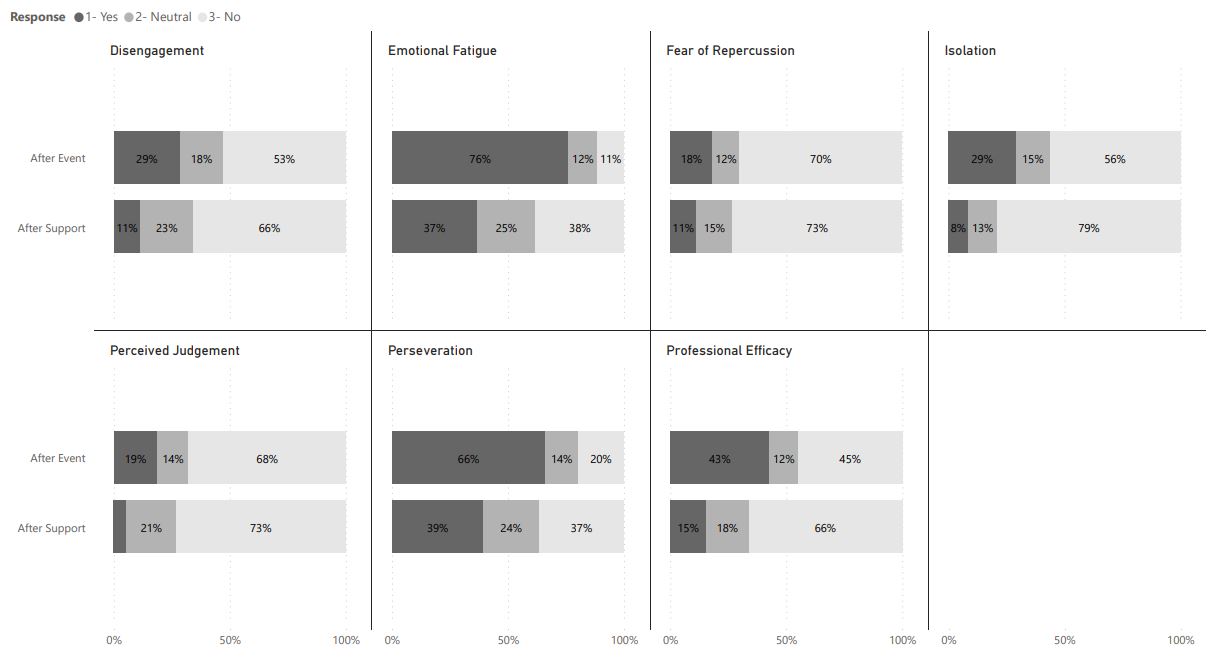Mental Health
Mental Health 2
393 - Impact of Peer-to-Peer Support Program on Emotional Distress Experienced by Pediatric Healthcare Workers
Saturday, April 29, 2023
3:30 PM - 6:00 PM ET
Poster Number: 393
Publication Number: 393.231
Publication Number: 393.231
Sarah Khan, Cincinnati Children's Hospital Medical Center, Cincinnati, OH, United States; Samantha L. Simpson, Cincinnati Children's Hospital Medical Center, Cincinnati, OH, United States; Lindsey M. Schiferl, Cincinnati Children's Hospital Medical Center, Cincinnati, OH, United States; Lindsay M. Boehl, Cincinnati Children's Hospital Medical Center, Cincinnati, OH, United States; Jackie Hausfeld, Cincinnati Childrens Hospital Medical Center, Liberty Twp, OH, United States; Paul Samuels, Cincinnati Children's Hospital, Cincinnati, OH, United States; Renee N.. Kreeger, Cincinnati Children's Hospital Medical Center, Cincinnati, OH, United States; Christine White, Cincinnati Children's Hospital Medical Center, Cincinnati, OH, United States
.jpg)
Sarah Khan, MD (she/her/hers)
Clinical Hospital Medicine Fellow
Cincinnati Children's Hospital Medical Center
Cincinnati, Ohio, United States
Presenting Author(s)
Background: Involvement in an adverse event can have detrimental psychological impacts on healthcare workers. Exposure to adverse events amplifies negative outcomes, including burnout. Although there has been a national increase in initiatives to combat burnout at an organizational level, the effect of these interventions remains under-studied.
Objective: To measure the effects of a novel, multidisciplinary, opt-out, institution-wide peer support program on emotional distress domains in healthcare workers following an adverse event.
Design/Methods: A peer support program was implemented at our institution in January 2020. This program identifies individuals from various health professions involved in an adverse event (e.g. medical error, patient death, patient deterioration) and proactively matches the individual with a trained peer supporter who reaches out with an offer of support. All encounters are confidential and voluntary. In January 2022, post-implementation questionnaires were electronically distributed to all clinical staff in departments with trained peer supporters. These questionnaires assessed the impact of peer support on domains of emotional distress using a 5-point Likert scale. The Wilcoxon signed-rank test was used to compare emotional distress scores pre- and post-receiving peer support.
Results: 954 individuals completed the post-implementation survey. Of those, 520 (54.5%) individuals endorsed being involved in an adverse event within the past two years. Among those involved in an adverse event, 234 (45.0%) were offered peer support with 71 (30.3%) accepting the offer. 158 individuals shared reasons for declining peer support (Table 1). Following peer support encounters, negative feelings were associated with a decrease in all domains regarding emotional distress (Figure 1). Emotional fatigue and perseveration showed the most significant improvement after receiving peer support (Table 2, p < 0.05). Overall, 71.8% agreed that having a peer support program was a valuable resource with approximately 80% recommending this resource for others.
Conclusion(s): We successfully implemented an opt-out, peer support program. This program was viewed favorably by participants and was associated with decreased negative feelings experienced by healthcare workers after an adverse event. Next steps include optimization of the identification process to ensure that all staff involved in an adverse event are universally offered this resource.



